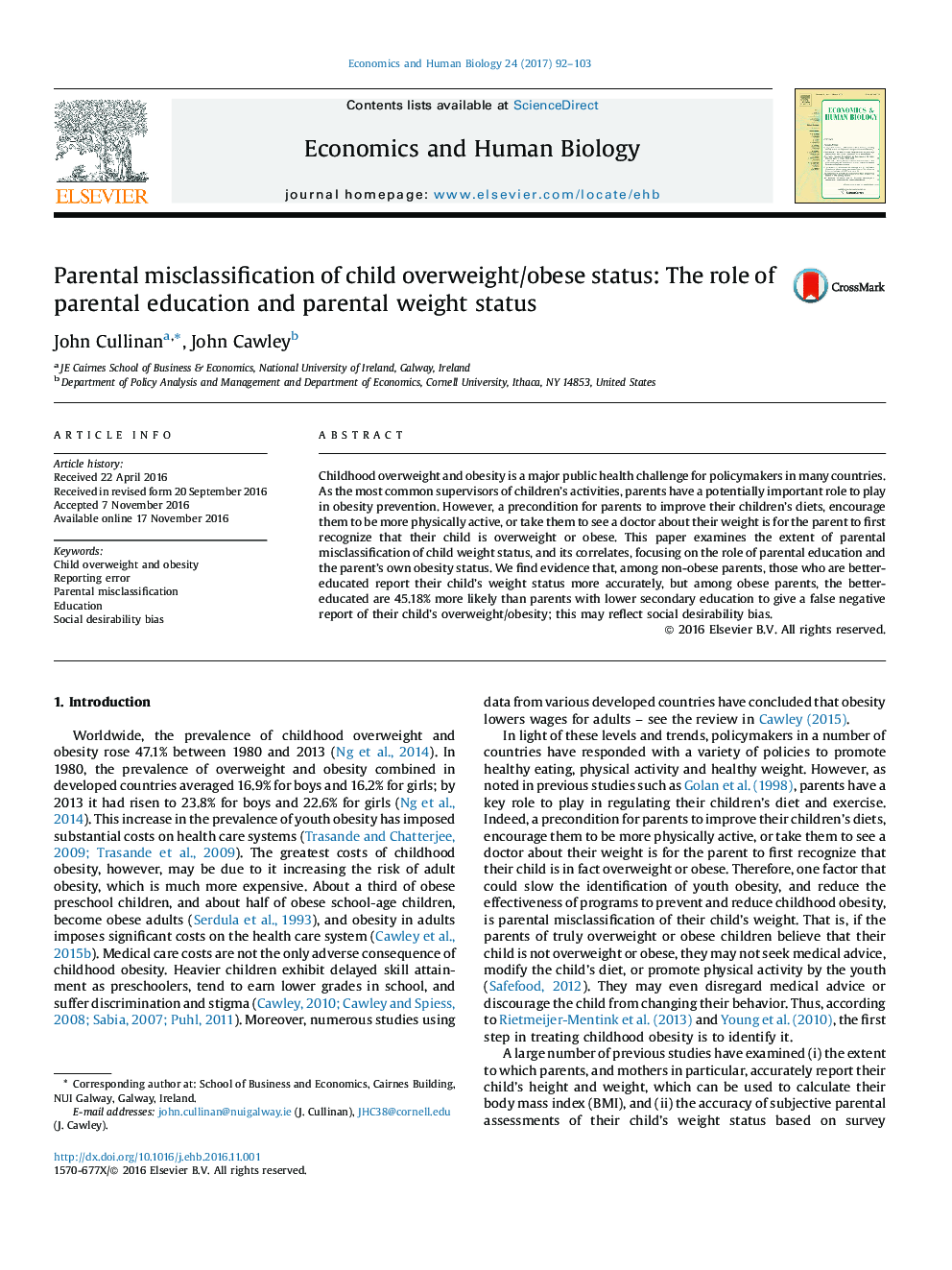| Article ID | Journal | Published Year | Pages | File Type |
|---|---|---|---|---|
| 5056791 | Economics & Human Biology | 2017 | 12 Pages |
â¢We consider parental misclassification of child weight status and its correlates.â¢More education is associated with more accurate reporting for non-obese parents.â¢More education is associated with less accurate reporting for obese parents.â¢Results indicate social desirability bias among well-educated obese parents.â¢We also identify high levels of false negative misclassifications by children.
Childhood overweight and obesity is a major public health challenge for policymakers in many countries. As the most common supervisors of children's activities, parents have a potentially important role to play in obesity prevention. However, a precondition for parents to improve their children's diets, encourage them to be more physically active, or take them to see a doctor about their weight is for the parent to first recognize that their child is overweight or obese. This paper examines the extent of parental misclassification of child weight status, and its correlates, focusing on the role of parental education and the parent's own obesity status. We find evidence that, among non-obese parents, those who are better-educated report their child's weight status more accurately, but among obese parents, the better-educated are 45.18% more likely than parents with lower secondary education to give a false negative report of their child's overweight/obesity; this may reflect social desirability bias.
